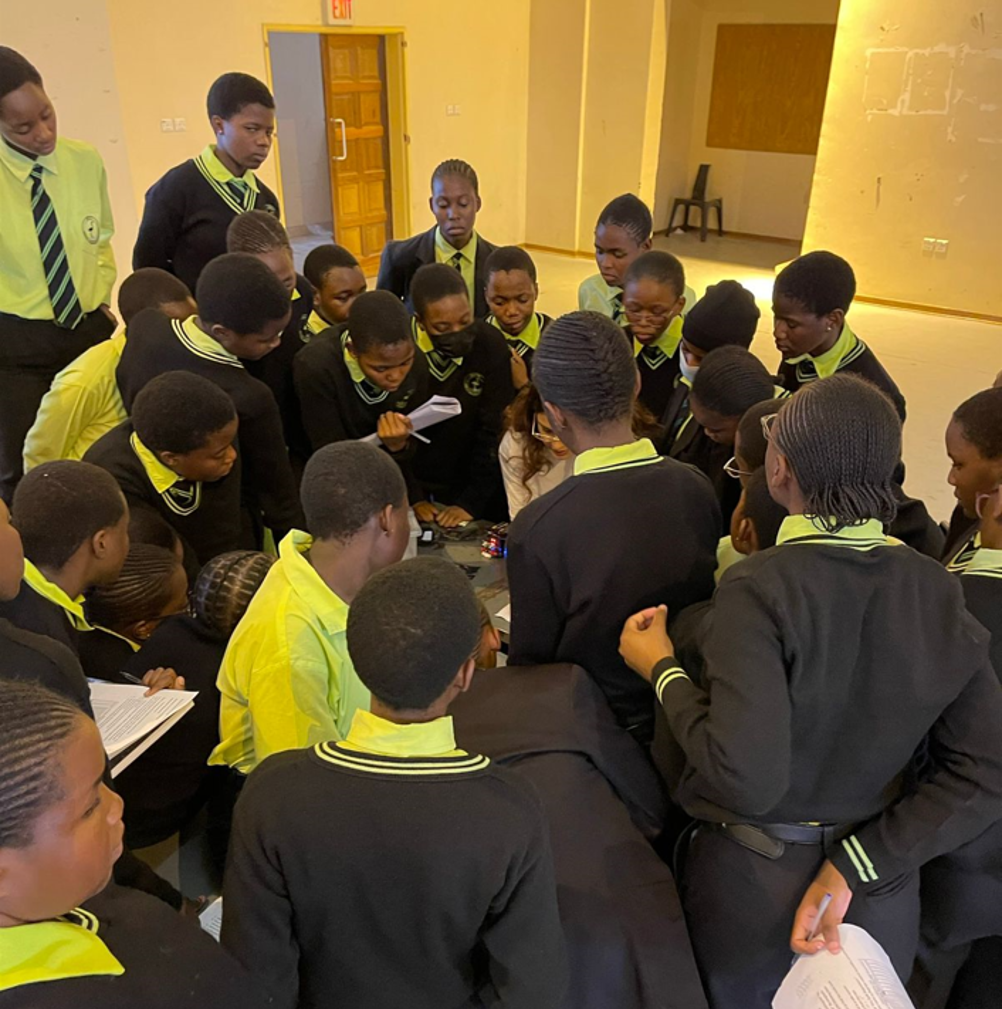The STEM skills shortage is not a new issue: it’s one affecting many industries and poses a risk to the UK’s technology development. Engineering is a particular skills shortage area affecting economic growth potential and one that many organisations, including RS, are actively trying to address.
It is an issue RS has long been involved in and we actively engage with the youth community to enrich the learning journey of student engineers and foster long-term relationships with the next generation. In fact, it is a key pillar in our ESG action plan to champion education and innovation.
Our mission to inspire future engineers and innovators is underpinned by real action. It is our goal to reach one million young people with educational technologies, learning content and skills development to support future engineers and innovators, by 2030.
We do this by getting involved with student engineers ‘on the ground’, on campus at their universities, which allows us to work with them directly and give them the experience of collaborating with industry.
Our commitment through our Grass Roots programme – which is in its fifth year – is to work with 10 university engineering societies each year to facilitate this. In doing so, we can help them develop their real-world skills to get them ready to enter the engineering industry. Technical skills married with employability ‘super skills’ are key development areas we help students with.
One of these societies is FemEng, a student-led society at the University of Glasgow with the aim of empowering women in engineering and actively breaking down the gender barrier: women make up just 16.5 per cent of all engineers. Our collaboration with FemEng is the longest standing and has paved the way for how we now collaborate with societies.
We’ve supported FemEng, which comprises 80 members, in a variety of ways. They have their own fantastic ideas, we simply support them in their mission. FemEng felt passionate about empowering women in the lab to get to know the basics of the equipment, as stepping into this largely male-dominated area for the first time can be daunting.
The society decided to develop, record and launch a series of videos called FemEng Lab. The series gives an overview of everything from circuits and biosensors, multimeters and voltage dividers, through to oscilloscopes and the capabilities of Arduino boards. RS supported them with feedback on their ideas, equipment needed to make the videos – like the donation of 10 Arduino kits for the technical workshop video – promotion of the videos to relevant audiences and a suitable place to host them: RS’ DesignSpark hub.

When FemEng decided to develop and deliver workshops to inspire young people in Africa, particularly girls, into a career in STEM, RS supported the mission with feedback on workshop plans and products to support the delivery. The annual mission has seen a group of FemEng members visit Malawi, Rwanda and, last year, Botswana, where a group of eight society members travelled to deliver engineering workshops. The aim was to provide an insight into engineering disciplines like mechanical, biomedical, product design, aeronautical, civil and electrical. Mining engineering was also included, as it is an area specific to the community in Botswana.
To see the fruits of such efforts is one of the most rewarding parts of my job as director of Youth Community for Grass Roots. FemEng’s Rwanda project, which ran from 2016 to 2019, helped increase the number of applications to STEM courses at the University of Rwanda by more than 100 per cent in four years. What an achievement and legacy for this group of determined, vivacious women! It makes me incredibly proud to be a part of it.
Two of the FemEng society alumni now also sit on RS’ ‘FAB15’, a global youth advisory board made up of generation Z volunteers – those born between 1997 and 2012 – who participate in projects set by RS, surveys, events and focus groups, to help us glean perspectives from those who hold the future of this industry in their hands.
Another FemEng member has also interned for The Washing Machine Project, RS’ chosen charity partner and an organisation that develops affordable, electricity-free, hand-cranked washing machines for use in areas of the world that have no access to laundry facilities. That’s around 70 per cent of the world’s population or 5.5 billion people. The ripple effect from being involved in these societies is evident.
Another society we partner with is King’s College London Womxn in STEM (WISTEM), for which we are delivering a workshop at one of the society’s Insights into Industry event series. It’s as important for us to help students understand what industry looks like, as it is to provide hands-on technical skills.
The mission of RS Grass Roots is to provide opportunities for students to experience the latest products and technologies in educational projects and applications. And to offer practical workshops, projects and activities resonating with their interests and career aspirations.
We provide access to online and offline learning content supporting the professional growth and skills development of student engineers, helping to get them work-ready. By close of financial year of 2023/2024, we will have supported around 2,000 students through our society partnerships. We’re a super passionate team who love our jobs: it’s amazing to see student engineers we have worked with go on to flourish in their careers.
Amy Muncer is director of Youth Community, RS Grass Roots Education











National Gas receives funding to develop Gravitricity underground hydrogen storage system
One single rock salt mine - Winsford - has 23 <i>MILLION </i>cubic metres of void and even allowing for 10% of that void set aside for hazardous waste...